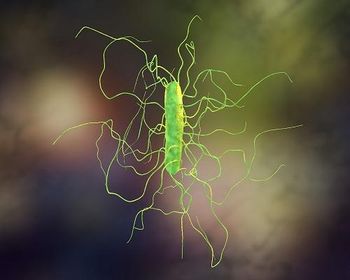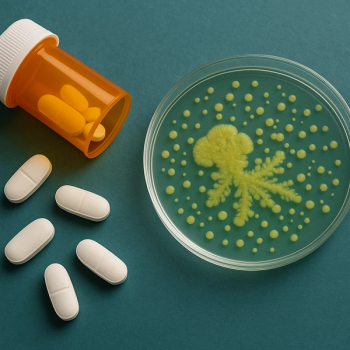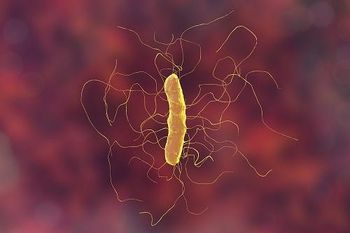
P-Cresol Inhibitors May Reduce CDI Relapse, Study Suggests
Inhibiting production of para-cresol could be effective against Clostridioides difficile infection by reducing the pathogen’s ability to compete with other bacteria in the gut microbiome, a new study found.
Investigators in England have identified several compounds that may inhibit production of para-cresol, reducing the ability of Clostridioides difficile to compete with other bacteria in the gut microbiome.
The study, published in
About 30% of patients with CDI experience recurrence of the infection, which is worsened by traditional treatments that disrupt the gut microbiota. Treatments such as
Therapeutics using p-cresol inhibitors could help restore the gut microbiome and resistance t C diff P-cresol is produced by the conversion of para-Hydroxyphenylacetic acid (p-HPA) by the HpdBCA enzyme complex. Inhibitors of HpdBCA decarboxylase reduce p-cresol production.
“Unlike other C difficile virulence factors, such as toxin production and sporulation, which differ between clades, utilization of p-HPA for p-cresol production is conserved in all five clades of C difficile. Therefore, targeting p-cresol production would be equally effective across all strains of C difficile that cause infection,” first author Mark Harrison of the London School of Hygiene and Tropical Medicine and colleagues wrote.
The investigators tested eight compounds to determine whether they had an effect on C diff or E coli growth and whether they had an effect on p-cresol production. Four of the compounds tested inhibited E coli growth and three of those were among compounds that inhibited p-cresol production. Three compounds inhibited C diff growth, including two that only did so in the presence of p-HPA.
“This data promisingly shows that modification to these compounds could allow for the identification of a compound that is both effective at inhibiting HpdBCA as well as being microbiome sparing,” the authors wrote.
Among several compounds identified to inhibit C diff p-cresol production, 4-Hydroxyphenylacetonitrile stood out, reducing p-cresol production by 99.0 ± 0.4% in a C difficile 630Δerm monoculture and by and 61.5 ± 8.4% in the competition-index assay.
The authors also noted that 4-Hydroxyphenylacetamide, a previously identified inhibitor of HpdBCA decarboxylase, only reduced p-cresol production by 54.9 ± 13.5%.
Five compounds were found to significantly reduce the ability of C diff to compete with E coli in competition-index assays, including three for which that outcome was attributed to reduction in p-cresol production.
The proportion of C difficile 630∆erm compared to E coli increased to 87.5 ± 7.6% in the presence of 1.5 mg/ml p-HPA compared with 18.1 ± 9.1% in the absence of p-HPA.
“The efficacy of microbiome sparing treatments and FMT in reducing episodes of infection relapse demonstrate the importance of the restoration of colonization resistance for the successful treatment of C difficile,” the authors wrote. “Further improvements in C difficile treatment will require therapies to be highly specific against C difficile and to promote the microbiome’s recovery of its lost colonization resistance. In this work we have identified several promising compounds that demonstrate the potential to fulfill these criteria through the inhibition of p-cresol production.”
Newsletter
Stay ahead of emerging infectious disease threats with expert insights and breaking research. Subscribe now to get updates delivered straight to your inbox.

































































































































